With an authentic, observational and cinematic style, Robin Mason uses his projects to focus on finding beauty in the unsung heroes. Robin has directed campaigns for Adidas, Cadbury, Expedia and more, and is now represented by The Gate Films for work across the North West.
Experience
What do you enjoy most about shooting for different brands?
Shooting for different brands is an opportunity to dive into unique worlds, and tell stories connected to different cultures and communities. As a filmmaker, to be given that opportunity has to be the most enjoyable element of this process.
At the start of each year, you don’t know what films you will make, where you will travel and with whom. One week you can be shooting an automotive spot, with a huge team, in an exotic location. Next time around, you could have a three-person crew interviewing someone in their home. It’s such a privilege to get access to these worlds, meet new people and problem-solve together.
Which project has been your most informative to date?
To date, the most informative projects have been my personal projects where I’m invested emotionally and financially. When you’re invested on multiple levels, you learn what’s important to the success of a piece - how to get the most value on screen and what’s vital to a productive working environment. It's a transferable skill that translates to the commercial sphere and helps us get the most out of a budget.
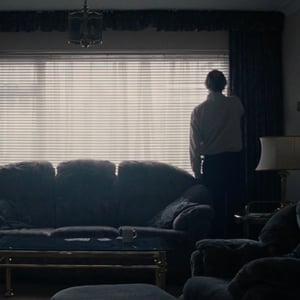
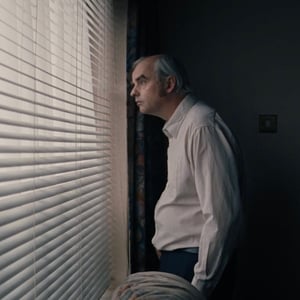
Do you enjoy collaborating with other directors?
It’s a weird one. Despite this being arguably the most collaborative art form, Directors rarely meet in a creative capacity. In the last few years I’ve been a member of an infamous Whatsapp group which has 100+ directors on it. It ranges from those starting out, to those working on the biggest global campaigns. Sharing and receiving knowledge and references has meant that it’s been an invaluable resource for me. It was particularly useful at the beginning of the pandemic when it was evident - and reassuring - that everyone else was sat at home completing Netflix.
How do you push a script to exceed client expectations?
I’m always looking at how a script can be stripped back to the fundamental truth at its core. It’s easy, and common, in the development stage for ideas to become inflated and overly complicated. It’s not hard to understand why this happens, as often scripts are worked on for months, if not years. It’s my job to work with the creatives and clients to execute the idea in a way that delivers the message in the most direct, impactful and often simplest way. For me ‘pushing’ means building up enough trust to take things away.
Which clients have been a dream to work with?
I’ve been fortunate enough to work with some fantastic clients over the years and to do multiple projects for the same client. Over time, you build trust in each other, and this is when the magic happens. Once you have trust, you can explore ideas and push each other rather than protect yourselves. Working with Expedia has been a dream, as essentially, it’s involved being sent to incredible locations with lovely people to capture the essence of a place – that’s a dream gig.

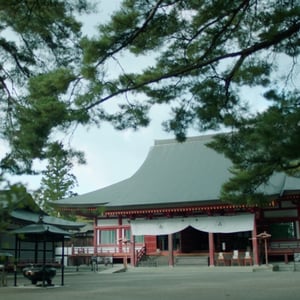
Have you had to work in any challenging locations? How did you handle it?
Every location presents its challenges and it’s about being comfortable being uncomfortable. It’s also about being respectful and aligning yourself with the local culture and how things work. Over a couple of years, I shot campaigns in Japan, the Bahamas and Saudi Arabia. Each one required a unique approach to handling the production and executing the idea.
What can film do for brands that other media forms can’t?
Film, when done right, is an empathy machine. You can put the audience in someone else’s shoes for a few minutes and relate to their situation. The holy grail of this would be the John Lewis Christmas ad. This demonstrates the perfect use of the short-form commercial spot. I’m not sure any other medium could affect such a vast amount of people, in the same way, in such a short space of time.
Industry
Who is the most important and or influential person for you in the world of film right now?
The clever answer is that it’s probably the CEO’s of the streaming giants such as Netflix and Disney+. However, if I’m honest, it’s my peer group. Friends who I’ve come up working with, and who are doing interesting work, are the ones I look at as being important to me. I know, at heart, that I want to make cool work to show my mates.
What concept, idea or technique do you think is most underused? Which is overhyped?
Stillness, perhaps. Styles are circular but with everyone fighting for audience’s attention the trend seems to have been to lean towards faster, louder, brighter.
The commercial work of Roy Andersson is a great example of restraint and patience. His films tend to be perfect little vignettes, usually told over one or two static shots. Today, it’s hard to see them being told in such a simple way.
Overhyped? There’s a time and place for everything but I think we’ve all had enough of the probe lens.
What recent technological innovation has had the biggest impact on your work?
I am part of the DSLR generation, which now feels ‘old hat’, but at the time it was a quantum leap in being able to get a more cinematic look without the associated cost. For me, this meant being able to shoot and shoot and shoot. Eventually building up enough of a reel to start pulling in work. Looking back at how far things have come, it’s mad to think how we made those ridiculous cameras - like the Nikon D90 and Canon Rebel – work, but we did.
How do immersive forms of filmmaking set to influence your work?
There is always an evolution in the way content is consumed, and predicting the future is incredibly difficult (Quibi anyone?). I’ve already done a number of interactive projects such as the ‘choose your own adventure’ films for Expedia. In this project, the audience made choices throughout the films, which in turn affected which edit they were presented with. It’s been exciting to see how more immersive storytelling can be harnessed, while ensuring it’s done in a way that the technology elements become invisible and the story comes through.
Do you think filmmakers have a responsibility to make challenging, socially conscious work?
It’s all to do with personal ethics and I don’t think filmmakers as a group shoulder that responsibility any more than others in the arts. Should brands be aware of the zeitgeist and be aiming to be on the right side of history? Absolutely. Part of my job when working with brands is to give my opinion, and offer solutions.
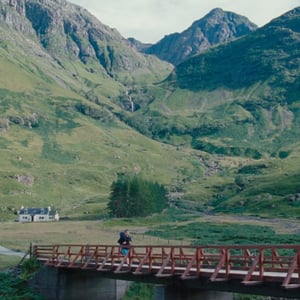
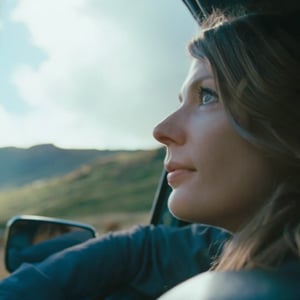
Personal
When inspiration is waning, when creativity is sapped, how do you stay inspired?
Walking. I live in Peckham, South London and I’ll often set off early and stroll the five miles into Soho or Shoreditch before starting work. I also try to do it without listening to music or podcasts. Recently, I read that creativity is the coming together of two concepts that have never connected before. If you’re constantly being bombarded, then those moments are prevented from ever happening. Whereas if you’re doing a simple task like walking and letting the mind wander, then I find it helps. That or Ayahuasca.
How do you know when your story is finished and it’s time to walk away?
For me, the story is complete when all elements are symbiotic. If I try to take any one element away, and the work falls apart, I know it’s complete. You need to pull out all indulgence, all the bells and whistles, and if you can tell it best in one static frame – do that. It’s easier said than done, of course.
What non-film medium inspires your work?
I love photography. Taking pictures, as well as owning a ridiculous amount of photo books. I find them a great source of inspiration. In many ways, more so than film. The modern American greats are probably the ones I turn to most, including Alec Soth, Todd Hido, Steven Shore. I feel like I try to pair their cinematic tones with more British sentiment like Martin Parr and Tony Ray-Jones.
Is the evolution of your style a conscious or subconscious process?
In essence, your style should be subconscious and a distillation of your tastes and experience. In reality, I think you have to go through an initial process where you are consciously trying different approaches and finding out what you’re good at, what works and what you like. Then all of sudden it can become subconscious.
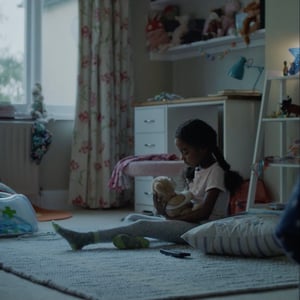
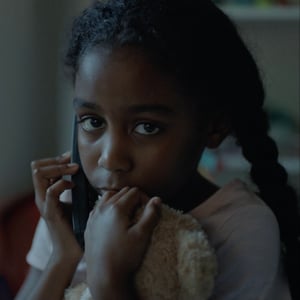
How do you balance meeting commercial objectives without sacrificing your art?
The age-old question, can commercials be art? Maybe, but rarely, and that’s fine. As a film-maker my approach has always been having personal projects running alongside my commercial work. My responsibility is to the client, product and message and not to my own personal ambitions, something that all directors battle with. For me, art is something that is made that no one is asking you to make. It’s where you can lean into risk and mistakes and the most interesting things happen that hopefully can then be transferred to the commercial sphere.
What’s going on in your world when you’re not looking through a lens?
It used to be surfing, travelling, festivals and hanging out in pub gardens. Now, it’s nursery runs, baby ballet, Peppa Pig and hanging out in pub gardens.
What’s your advice for emerging filmmakers wanting to make their stamp in the Industry?
Here comes a stream of clichés, because some clichés are true. There’s only one ‘you’, so don’t follow the fashion, or latest trends to get work. Tell stories that are unique to you and tell them in the way you’d like to see. Chances are if you like them, others will. And don’t get despondent with failures. Filmmaking is a series of failures with the odd success. And the ones who ‘make it’ are simply the ones who hung on for the longest... I don’t think you ever ‘make it’.
What are you most looking forward to with your adventure with The Gate?
This is a collaborative industry built on relationships and so I’m looking forward to forming new ones. Everyone I have met at The Gate seems to have a drive to make good work while having a good time doing it. That’s all we can ask for, right?
Want to see more of Robin Mason's work? Click here to check out his director’s page.